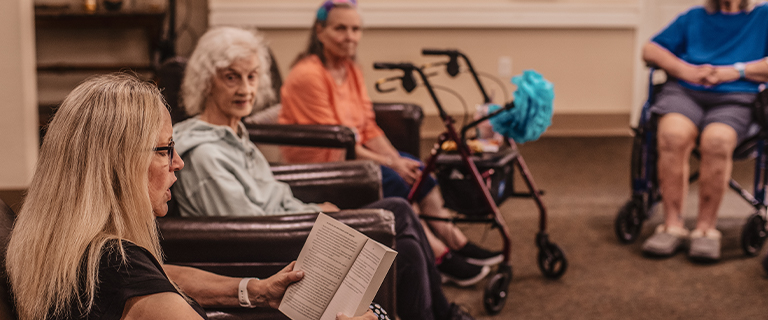When your loved one is diagnosed with dementia, one of the most overwhelming challenges is understanding the condition’s progression and determining how best to care for them. The FAST Scale (Functional Assessment Staging Test) is a simple yet effective tool designed to help families and caregivers understand the different stages of dementia, paving the way for informed and compassionate care decisions.
Memory care communities like ours specialize in tailoring care to each individual, helping families nurture personal growth and unconditional love while preserving their loved one’s dignity and independence in a comfortable space with supportive amenities. Learning more about the FAST Scale, its stages, and why it’s a valuable resource for anyone navigating the complexities of dementia can help you make the right choices for your loved one.
What Is Dementia?
Dementia is a general term that encompasses a range of conditions affecting memory, thinking, and the ability to perform everyday tasks. While there are many types of dementia, Alzheimer’s disease is the most common.
Symptoms vary from person to person, but they often include:
- Memory loss or forgetfulness
- Difficulty concentrating or solving problems
- Changes in behavior, mood, or personality
- Problems with communication
Over time, these symptoms may worsen, requiring increased care and support to maintain your loved one’s quality of life.
Understanding the FAST Scale for Dementia
The FAST Scale was developed as a tool to assess the progression of Alzheimer’s disease and other types of cognitive decline. By categorizing dementia into 7 stages, this scale provides a clear framework for understanding your loved one’s abilities and adapting their care plan to them.
While primarily applied to Alzheimer’s, the FAST Scale can also help with assessments of other dementia types, guiding families to make well-informed decisions.
The Seven Stages of the FAST Scale
Each stage of the FAST Scale marks a specific point in the progression of dementia. Understanding these stages is crucial to providing the right level of care and support.
Stage 1
At this stage, there are no noticeable symptoms of dementia. Your loved one’s memory and cognitive abilities remain intact, and they can fully manage their daily routines.
Stage 2
Here, mild forgetfulness begins to appear but can often be mistaken for normal aging. Symptoms may manifest as:
- Misplacing everyday items
- Forgetting appointments
- Occasionally using incorrect names
Assistance is not typically necessary at this stage.
Stage 3
Mild cognitive impairment becomes evident in Stage 3. Some noticeable signs are:
- Trouble organizing tasks or solving problems
- Difficulty remembering names of acquaintances
- Slight changes in work performance or social interactions
While daily independence remains, help with more complex tasks is often appreciated.
Stage 4
Stage 4 marks moderate cognitive decline. Individuals may:
- Struggle with financial decisions or event planning
- Forget recent personal experiences
- Find shopping or navigating new places challenging
At this stage, part-time support with daily activities becomes more important.
Stage 5
Significant functional impairments appear in Stage 5, including:
- Forgetting key personal details (e.g., address or phone number)
- Difficulty recognizing familiar faces
- Challenges with dressing or preparing meals
Full-time assistance becomes increasingly vital.
Stage 6
Severe cognitive decline is evident in Stage 6. Common symptoms include:
- Choosing inappropriate clothing for the weather
- Struggling with basic hygiene routines
- Trouble completing simple activities like using utensils
This stage often necessitates professional memory care to ensure safety and maintain dignity.
Stage 7
The final stage, Stage 7, is characterized by:
- Losing the ability to walk or sit unassisted
- Severe verbal communication difficulties
- Reduced ability to eat or swallow
Around-the-clock specialized care becomes critical to provide comfort, safety, and compassion at this stage.
How the FAST Scale Helps Families & Caregivers
The FAST Scale does more than categorize dementia stages. It serves as a guiding light for caregivers in 3 powerful ways:
Clarity Amid Complexity
The scale simplifies an often complex condition, offering a structured understanding of how dementia progresses. Knowing which stage your loved one is in allows you to anticipate their future needs.
Creating Tailored Care Plans
By identifying the current stage of dementia, families can work alongside memory care communities to create individualized care plans. These plans ensure your loved one receives the right level of support at the right time.
When to Seek Professional Help
Recognizing early signs that indicate the need for professional care is often one of the most challenging steps families face. The FAST Scale can act as your signal for when it may be time to explore memory care services like those offered at Parsons House Preston Hollow.
Supporting a Loved One with Dementia
Caring for someone with dementia requires empathy, patience, and knowledge. Whether your loved one is in the early stages of memory loss or needs more comprehensive assistance, here are ways you can support them on their journey:
Educate Yourself
Understanding dementia’s progression will help you empathize with what they are going through and prepare you for the challenges ahead.
Be Patient & Compassionate
Dementia can result in confusion, frustration, and behavioral changes. Consistently offering patience, kindness, and gentle reassurance can make a world of difference.
Prioritize Safety
From modifying their living environment to minimize risks to ensuring they take their medications correctly, small safety measures go a long way.
Seek Professional Help

Memory care communities specialize in supporting individuals with dementia and creating a positive, nurturing environment.
Take Care of Yourself
Being a caregiver can be emotionally and physically draining. Don’t hesitate to seek support, whether from friends, caregiver networks, or professionals, and take time to care for your well-being too.
Enriching Lives Through Compassionate Memory Care
At Parsons House Preston Hollow, we’re more than a memory care community—we’re a family committed to improving the lives of both our residents and their loved ones. For over 40 years, families have trusted us to provide personalized care rooted in respect, patience, and unconditional love.
Our team works hand-in-hand with families to create a nurturing and peaceful place for elders to thrive. Whether your loved one needs occasional assistance with daily tasks or full-time memory care support, we tailor our care plans to their unique needs, helping them maintain their highest level of independence and dignity.
If you’re ready to explore how we can help your loved one, give us a call today. Together, we can ensure they live each day with care, comfort, and connection.



